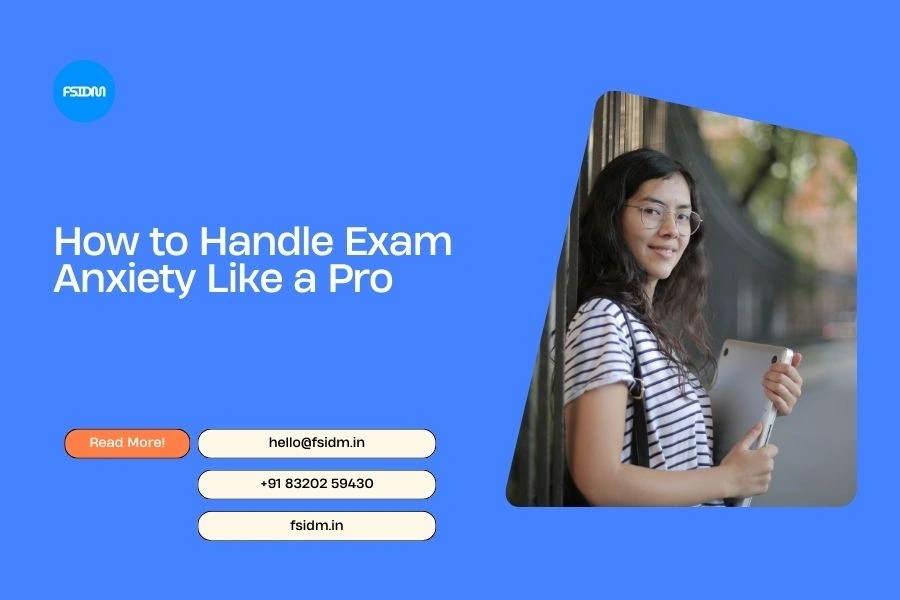Hey Let’s Get Real 😅
Exams can feel like a pressure cooker—heart racing, brain blanking, hands sweating.
But here’s the truth: exam anxiety is normal, and the good news is—you can manage it like a pro.
Why Exam Anxiety Hits Students Hard 😰
- High Stakes Pressure: Grades, college admissions, and parental expectations
- Overthinking: “What if I forget everything?”
- Lack of Preparation: Feeling unprepared heightens fear
- Comparison Trap: Seeing peers study more or score higher
Pro Tips to Handle Exam Anxiety Like a Boss 💪
1️⃣ Plan & Break It Down 📅
- Create a realistic study schedule
- Break subjects into smaller chunks, set mini-goals
- Example: 2 chapters today, 1 revision tomorrow
💡 Pro Tip: Checking off small tasks gives confidence and reduces stress
2️⃣ Practice Mock Tests & Active Recall 📝
- Test yourself like it’s the real exam
- Active recall + spaced repetition helps retain knowledge under pressure
💡 Pro Tip: Treat mistakes in mocks as lessons, not failures
3️⃣ Mindfulness & Breathing Exercises 🧘♀️
- Even 5 minutes of deep breathing reduces cortisol (stress hormone)
- Apps: Headspace, Calm, or simple box-breathing techniques
💡 Pro Tip: Use these techniques right before the exam to stay calm
4️⃣ Healthy Body, Focused Mind 🍎🏃♂️
- Sleep 7–8 hours, eat nutritious meals, and exercise
- Avoid last-minute cramming; your brain works better rested
💡 Pro Tip: Short walks or light exercise before studying improves focus
5️⃣ Positive Mindset & Visualization 🌟
- Visualize success—imagine confidently answering questions
- Replace “I’ll fail” thoughts with “I’ve prepared well”
💡 Pro Tip: Affirmations and visualization calm nerves and boost confidence
6️⃣ Practical Skill Application 🛠️
- Hands-on learning (projects, simulations, or internships) reduces exam stress
- Example: FSIDM students practicing real campaigns feel more confident than rote learners
💡 Pro Tip: The more you apply knowledge, the less anxiety comes from “theory-only” fear
Reality Check 🔥
Exam anxiety isn’t about weakness—it’s your brain telling you it cares.
With planning, practice, mindfulness, and real-world skill application, you can turn nerves into peak performance.









